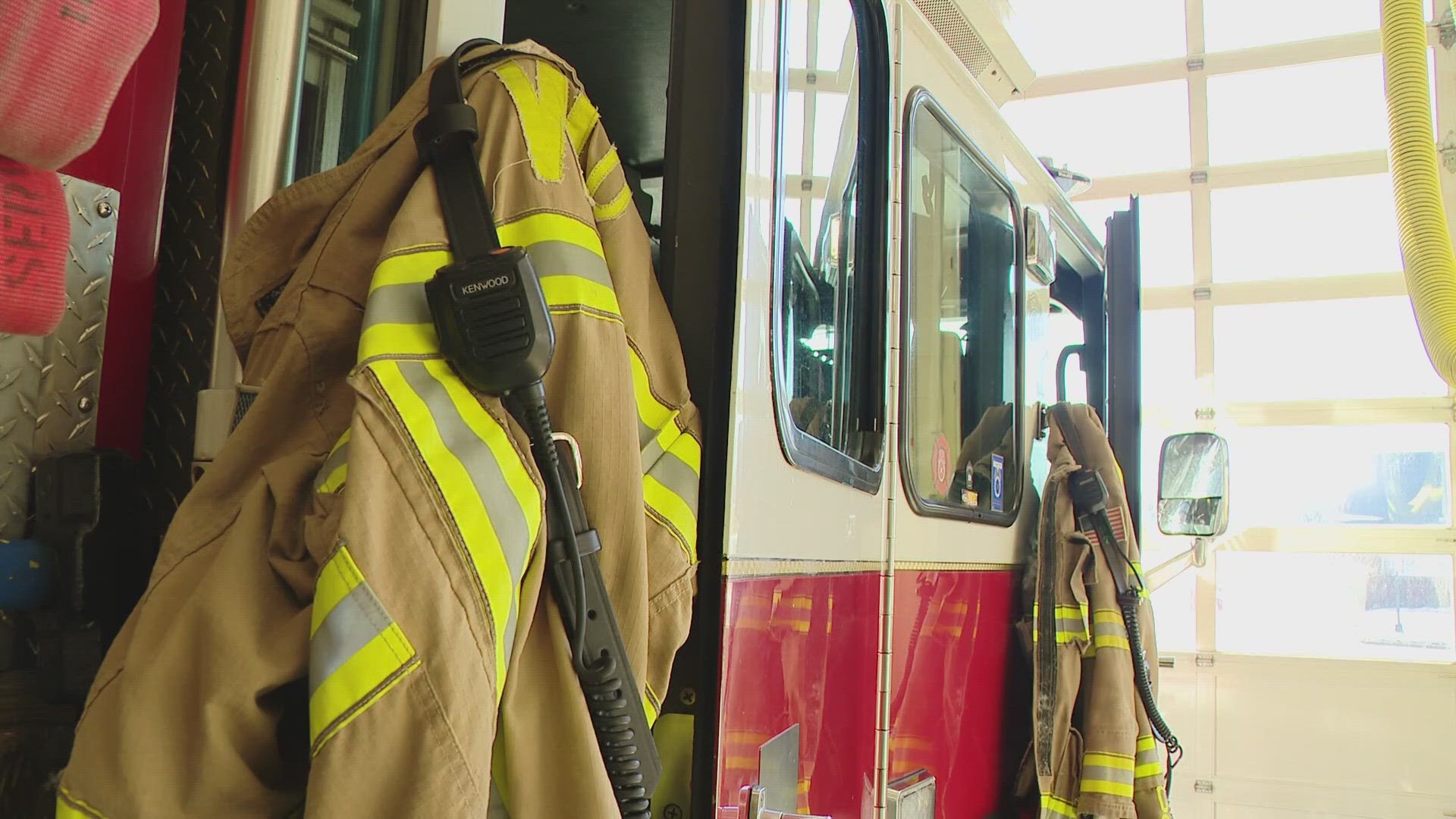PORTLAND, Maine — There are few careers where people put their lives on the line every single day, and that certainly includes firefighters, as it's a job that comes with immediate dangers and long-term health risks.
The Federal Emergency Management Agency is taking applications for its Assistance Firefighter Grant (AFG) Program in its effort to distribute $324 million worth of grants to fire departments across the country.
"The least that we can do is make sure that they [firefighters] have equipment, and that their protective gear is not going to cause cancer at the end of their career," Westbrook's Fire Chief Steve Sloan, said.
The grants are aimed toward helping fire departments get protective gear, equipment, and access training, among other things that departments can't pay for in their regular operational budget, Chief Sloan said.
In recent years, the Portland Fire Department was awarded a grant it used toward enrolling 50 firefighters in a clinical trial lung cancer screening through Massachusetts General Hospital that looked for cancer risk among firefighters.
"He said we're going to take 50 people, and they called up and said I was number 51. 'Sorry you're not going'," Dave Crowley, a lieutenant in Portland Fire Department's Marine Division, said.
Fortunately for Crowley, he was able to eventually secure a spot in the screening after one of his coworkers dropped out. Little did he know, being the last person on the roster to get the scans may have saved his life.
Doctors found a spot on his lungs that wouldn't have been caught if it weren't for early detection.
"The eye-opening thing was he [a doctor] said, 'If this turns out to be something, you would not have known until it was too late," Crowley said.
After spending 24 years as a fireman, Crowley said it's still been one of the best decisions he's ever made. He said he's glad there are more industry-wide conversations around long-term health risks associated with the job now than when he first started.
"Helping people is probably the thing that got me into the service and what is the primary reason that keeps me here," Chief Sloan said.
Sloan was diagnosed with skin cancer after doctors suggested he got it from the job. Since, he's given everyone in his department health screenings, taking that money out of his operational budget.
He said he'd consider applying for a FEMA grant particularly to cover the costs of the screenings, which he hopes to do every other year, so he has leftover money in his budget to help buy new protective gear and equipment.
Every year, FEMA targets a few "top priority" items for its AFG program. One of the highest priorities this year is to provide assistance so fire departments can start ordering PFAS-free turnout gear, Sloan said.
A new study by the National Institute of Standards and Technology found protective clothing, like turnout gear, tends to release PFAS, which are cancer-causing chemicals. Everyday wear and tear increases the amount of the chemicals released from the fabric, according to the study.
"Some of the smaller communities, they might not have the financial means that the larger departments do. They rely on grants to be able to buy protective clothing for their employees, for their air packs- all those things that otherwise they wouldn't be able to afford," Sloan said.

